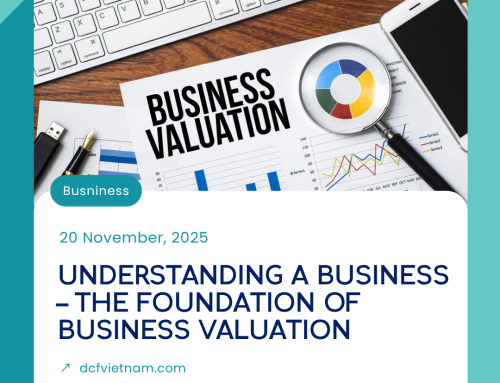In a major step toward regulating digital asset markets, the Government of Vietnam officially enacted Resolution No. 05/2025/NQ-CP on September 9, 2025, marking the commencement of a five-year pilot program to govern the issuance, offering, trading and custody of tokenized (or “encrypted”) assets in Vietnam.

The resolution comes into effect immediately and shall be in force through the trial period, unless replaced or revised by a subsequent legal instrument. The resolution defines the scope to include the public offering and issuance of tokenized assets, the organization of trading markets, and the provision of related services – including custody, platform issuance, and proprietary trading – along with State supervision over such markets. Entities covered include issuers, service providers, investors (both domestic and foreign), and other relevant participants.
Key Provisions and Requirements
– Definitions and exclusions
The resolution clarifies that a tokenized asset is a form of digital asset created, issued, stored, transferred and authenticated by cryptographic or equivalent digital technologies. However, it explicitly excludes securities, legal tender, and other financial assets already governed under existing financial laws.
– Issuance and offering
Under the new rules, only Vietnamese enterprises organized as limited liability companies (LLCs) or joint-stock companies may issue tokenized assets. The tokenized assets must be backed by real underlying assets (excluding securities or legal tender) – a requirement that may limit certain cryptocurrencies or tokens that lack a direct asset backing. The offering of tokenized assets under the pilot is restricted to foreign investors, and trading among foreign investors can only occur via licensed service providers. Issuers must publicly disclose information at least 15 days before their offering (e.g. via a prospectus template), posted on both the issuance platform and the issuer’s website.
– Market operations and investor rules
Domestic investors holding tokenized assets must open accounts with service providers licensed by the Ministry of Finance. Six months after the first licensed service provider is approved, all domestic transactions in tokenized assets must pass through licensed providers; failure to comply may trigger administrative or criminal penalties, depending on severity. All tokenized asset trading, settlement, issuance, and payment must be conducted in Vietnamese dong.
– Licensing, conditions, and standards
To become a licensed provider of tokenized asset services, an enterprise must be domiciled in Vietnam and register under local corporate law. The minimum charter capital is set at 10,000 billion VND (approximately several hundred million USD). At least 65 % of the capital must be held by institutional investors, including at least two financial institutions such as banks, securities companies, fund managers, insurers, or technology firms. Foreign ownership in such licensed providers is limited to 49 %. The service provider must also have robust infrastructure (headquarters, IT systems), personnel with relevant experience (e.g. CIO, CTO, compliance), and various internal processes – for risk management, security, anti–money laundering, dispute resolution, and transaction monitoring. Their IT systems must meet level-4 security standards before activation.
– Supervision, risk management, and compliance
Throughout the pilot, the Government emphasizes the principles of prudence, control, transparency, and protection of lawful interests. If material risks emerge – to financial stability, monetary order, social security or public interest – the Ministry of Finance may propose suspension, adjustment, or termination of the pilot activities. Participants must comply with laws on anti–money laundering, counter-terrorist financing, cybersecurity, data protection and related regulation. Violations will incur administrative sanctions or criminal prosecution, depending on severity.
– Tax treatment during pilot
Until a specific tax regime is introduced for digital assets, taxation on transactions, transfers, and business operations involving tokenized assets will follow rules applicable to securities.
Implications, Challenges and Outlook
Resolution 05/2025 represents Vietnam’s first comprehensive legal instrument for regulating digital assets, bringing the country closer to global regulatory norms and removing a long-standing legal vacuum. The launch of a regulated pilot may help redirect previously informal capital flows into transparent, supervised channels.
However, practical challenges lie ahead. The requirement that tokenized assets must be backed by real assets may limit the applicability of widely traded cryptocurrencies (e.g. Bitcoin, Ethereum) which do not have a one-to-one asset backing. Key definitions, disclosures, and valuation methodologies for underlying assets remain to be clarified by implementing guidance. Moreover, the high capital and compliance thresholds may restrict entry to large players. In addition, enforcement and investor education will be vital, as authorities have already issued warnings about misuse of the resolution to solicit unauthorized investment schemes.
For domestic investors, the six-month grace period for mandatory channeling of all tokenized trades via licensed platforms is a pivotal threshold; failure to comply could carry sanctions.
In the longer term, upon the conclusion of the pilot, the framework may be adapted or codified into a permanent legal regime. For now, the policy sets an important benchmark for balancing innovation in digital finance with risk control and legal certainty in Vietnam’s evolving financial landscape.
CONTACT
DCF VIETNAM CORPORATION
📍 46F Bitexco Tower, 2 Hai Trieu, Sai Gon Ward, Ho Chi Minh City, Vietnam
📩 info@dcfvietnam.com
📞 +84 965 30 44 30





